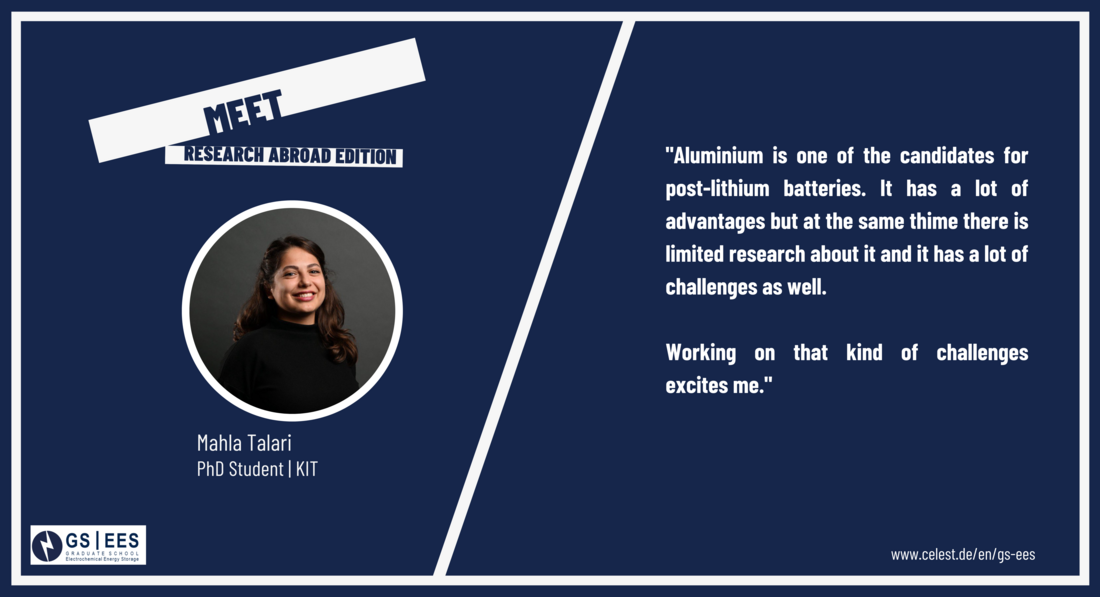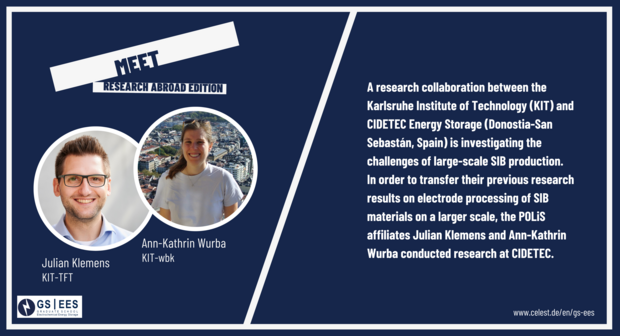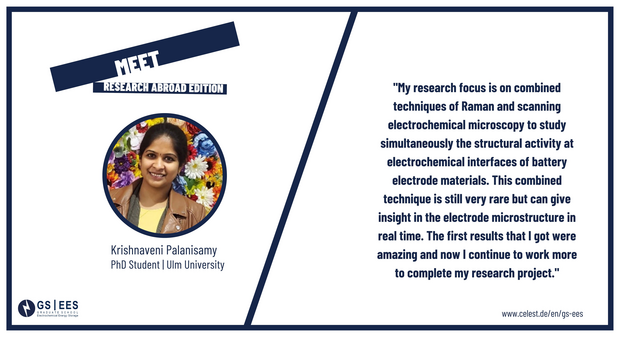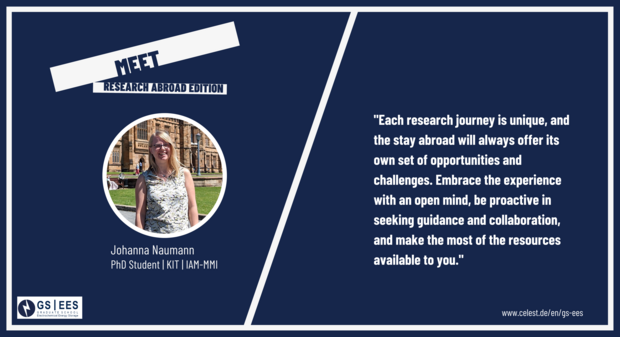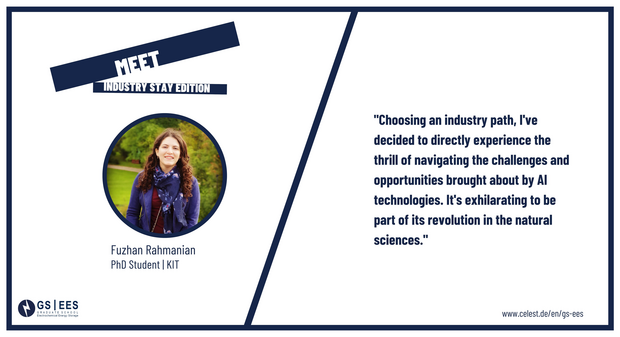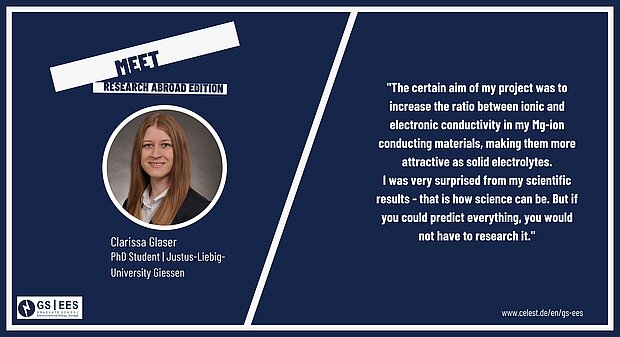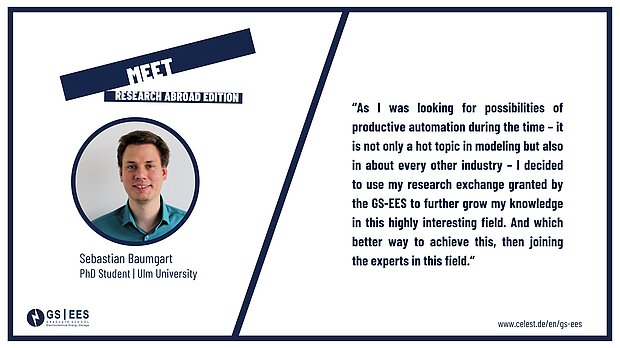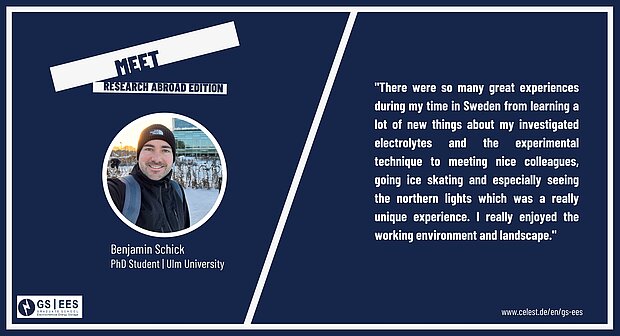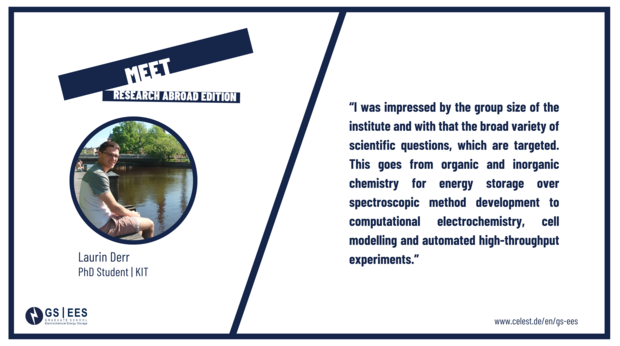Research Abroad
Research Abroad
There are plenty of good reasons for a research stay abroad. It offers the chance to dive into a new culture, see another research environment, learn from the expertise of other researchers, make new friends and connect with other researchers to build a network.
A three-month research stay abroad is part of the GS-EES Core Program. The GS-EES provides financial support for travel and accommodation expenses. The amount of the financial support is specific for the destination and based on tables of the DAAD.
Choosing the destination for the research abroad is within the responsibility of the doctoral researcher and the scientific supervisors.
The research abroad destinations are not restricted to universities, the stay can also be done at other research institutions or even in industry. This offers the opportunity to gain initial experience outside the academic environment and promotes technology transfer between science and industry.
An overview of where members of the GS-EES have been for their Research Stay Abroad can be found below:
- University of Sydney, Australia
- University of Innsbruck, Austria
- University of Waterloo, Canada
- McGill University, Montreal, Canada
- University of Waterloo, Canada
- SiChuan University, China
- Charles University, Czech Republic
- Technical University of Denmark (DTU), Denmark
- University of Upper Alsace, Mulhouse, France
- BASF, Germany
- Fraunhofer ISE Freiburg, Germany
- University of Camerino, Italy
- Kanazawa University, Japan
- Chiba University, Japan
- University of Stavanger, Norway
- Skolkovo Institute of Science and Technology (Skoltech), Russia
- CIDETEC, Spain
- Uppsala University, Sweden
- Chalmers University, Sweden
- Umeå University, Sweden
- EMPA, St. Gallen, Switzerland
- École Polytechnique Fédérale de Lausanne (EPFL), Switzerland
- University of Cambridge, UK
- University of Oxford, UK
- Pennsylvania State University, USA
- University of Notre Dame, USA
- Massachusetts Institute of Technology (MIT), USA
- Ohio State University, USA
- University of Illinois, USA
- Carnegie Mellon University Pittsburgh, USA
Research Abroad Features
FAQs | Important things to know
- Which time during the doctorate should I aim for the research abroad?
We recommend the second year of the doctorate, so that you have become familiar with your topic at home but still have enough time to make use of the results gained abroad.
- How far in advance should I plan my stay abroad?
Ideally as early as possible but at the end it also depends on the chosen destination and visa application processes.
- Can the research stay be longer than 3-months?
Yes, but financial support is limited to 3 month. Also the administrative effort may increase as staying longer might afford different visa and additional regulation with the employer at home.
- Can the research stay be splitted?
Yes, you can choose to divide the research stay into shorter periods of time or even do it at different destinations. The accommodation costs are not affected by that but your institute should come up for the additional travel costs.
- Whom can I contact if I have questions or need help organizing my research stay abroad?
You can always contact your professor as he or she might have the right contact for you in case your own research wasn't successful. You may also contact the GS-EES Office or the International Offices of the respective universitites to get support or questions answered.
- Do I have to go to another university or can I also spend 3 months in industry?
The research stay can also be done in industry to gain first-hand experience.
- How should I decide on a destination? How do I know where to go?
In principle, everyone can choose their own destination. However, it is important that the chosen group fits thematically and can perhaps also be combined with cultural exchange. If you need support on making a decision on where to go, your Professor or fellow students might be a good option to ask.

